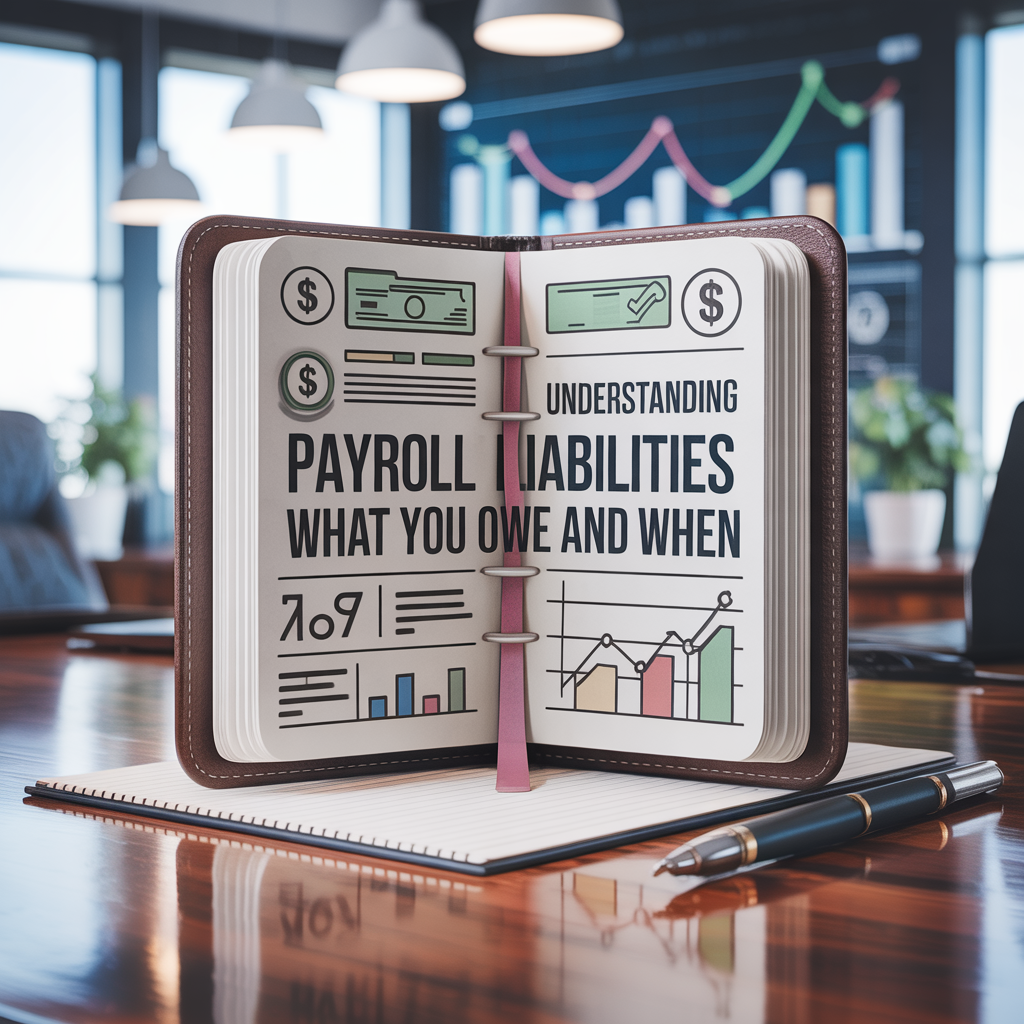The Importance of Financial Forecasting for Startups: Driving Growth and Stability

Starting a business is exciting, but it can also be pretty nerve-wracking. As a startup founder, you're probably juggling a million things at once - developing your product, building your team, and trying to get those first customers through the door. With so much going on, it's easy to push financial planning to the back burner. But here's the thing: having a solid grasp on your finances from day one can make or break your startup's success.
At Boulanger CPA, we've seen firsthand how crucial financial forecasting is for new businesses. It's not just about crunching numbers - it's about setting yourself up for sustainable growth and avoiding those scary cash crunches that keep entrepreneurs up at night. Let's dive into why financial forecasting matters so much for startups and how it can help drive your business forward.
What Exactly is Financial Forecasting?
Before we get into the nitty-gritty, let's break down what we mean by financial forecasting. In simple terms, it's the process of estimating your future financial performance based on historical data, market trends, and your business goals. This includes projecting things like:
- Revenue
- Expenses
- Cash flow
- Profit margins
A good forecast looks at both the short-term (think next quarter) and long-term (1-5 years out) to give you a comprehensive view of where your business is headed.
Why Startups Need Financial Forecasting
Now, you might be thinking, "My business is brand new - how can I forecast anything when I don't have much data to work with?" It's a fair question, but here's why forecasting is actually even more critical for startups:
1. Helps You Secure Funding
Let's face it - most startups need some outside capital to get off the ground. Whether you're pitching to venture capitalists or applying for a bank loan, investors want to see that you have a clear plan for growth and profitability. A well-crafted financial forecast shows them you've done your homework and gives them confidence in your business model.
I remember working with a tech startup last year that was struggling to land their first round of funding. We sat down together and developed a detailed 3-year forecast that mapped out their path to profitability. Armed with this data, they were able to secure a $500,000 seed investment that fueled their initial growth phase.
2. Guides Smart Decision-Making
When you're just starting out, every decision feels make-or-break. Should you hire that expensive developer? Invest in a fancy marketing campaign? Move to a bigger office? Financial forecasting gives you a framework to evaluate these choices based on their potential impact on your bottom line.
For example, one of our e-commerce clients was debating whether to expand into a new product line. By running different scenarios through their financial model, we were able to show them that while the expansion would increase revenue, it would actually decrease their profit margins in the short-term. This insight helped them decide to hold off on the expansion and focus on optimizing their existing products first.
3. Helps You Manage Cash Flow
Cash flow issues are the number one killer of small businesses. A good forecast helps you anticipate potential cash crunches before they happen, so you can take action to avoid them. This might mean adjusting your pricing, negotiating better payment terms with suppliers, or lining up a line of credit before you desperately need it.
4. Sets Realistic Goals and Expectations
It's great to dream big, but unrealistic expectations can lead to frustration and burnout. Financial forecasting forces you to think critically about your growth potential and set achievable milestones. This doesn't mean you can't be ambitious - it just means your ambitions are grounded in data rather than wishful thinking.
How to Create an Effective Financial Forecast
Okay, so we've established that forecasting is important. But how do you actually do it? Here's a step-by-step guide to get you started:
1. Gather Your Historical Data
If you've been in business for a while, start by collecting your past financial statements. Look for trends in your revenue, expenses, and cash flow. If you're brand new, you'll need to do some market research to estimate these figures based on similar businesses in your industry.
2. Identify Your Key Drivers
What are the main factors that influence your financial performance? This might include things like:
- Number of customers
- Average purchase value
- Customer acquisition cost
- Churn rate
- Production costs
Understanding these drivers will help you create more accurate projections.
3. Create Multiple Scenarios
Don't just forecast for your best-case scenario. Create at least three projections:
- Conservative (worst-case)
- Moderate (most likely)
- Optimistic (best-case)
This will help you prepare for different outcomes and have contingency plans in place.
4. Use the Right Tools
While you can start with a simple spreadsheet, there are plenty of great tools out there designed specifically for startup financial modeling. Some popular options include LivePlan, Futrli, and PlanGuru. These can save you time and reduce the risk of errors in your calculations.
5. Review and Update Regularly
Your forecast isn't set in stone. Make it a habit to review and adjust your projections at least quarterly, if not monthly. This will help you stay on top of changing market conditions and keep your business agile.
Common Pitfalls to Avoid
Even with the best intentions, it's easy to make mistakes when forecasting. Here are a few common pitfalls to watch out for:
1. Being Too Optimistic
We all want our businesses to succeed, but overly rosy projections can lead to poor decision-making. Be honest with yourself about potential challenges and risks.
2. Ignoring Seasonality
Many businesses experience natural ups and downs throughout the year. Make sure your forecast accounts for these fluctuations.
3. Forgetting About Taxes
It's not just about revenue and expenses - don't forget to factor in your tax obligations when projecting your cash flow.
4. Neglecting Non-Financial Metrics
While financial data is crucial, don't ignore other important indicators like customer satisfaction, employee retention, or product development milestones. These can all impact your financial performance in the long run.
The Bottom Line
Financial forecasting might not be the most exciting part of running a startup, but it's absolutely essential for long-term success. It gives you the insights you need to make smart decisions, avoid cash flow crises, and build a sustainable business model.
At Boulanger CPA, we're passionate about helping startups navigate the financial side of their business. We've seen firsthand how accurate forecasting can transform a struggling startup into a thriving company. If you're feeling overwhelmed by the numbers, don't hesitate to reach out for help. A little expert guidance can go a long way in setting your business up for success.
Remember, your financial forecast is more than just a bunch of spreadsheets - it's a roadmap for your business's future. Take the time to do it right, and you'll be amazed at how much clearer your path forward becomes. Here's to your startup's growth and success!

Marc Boulanger
Marc views his accounting business as an extension of his family. And while he holds a Bachelor of Arts in Business Administration and Accounting and a Masters of Science in Accounting, he values traveling around the country with his wife of 30 years and 5 kids, Marc learned that communication is the key to effective team work.


